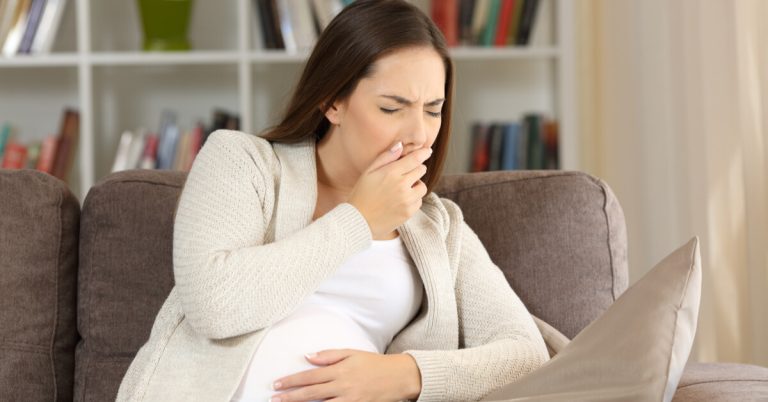After giving birth, you may devote most of your energy to taking care of your baby. However, taking care of your own health is also important during this period when your body is recovering from pregnancy and providing your baby with the most valuable nutrition, breast milk.
The Importance of Nutrition During Breastfeeding
Nutrition during breastfeeding;
- meets the mother’s physiological needs,
- balances energy and nutrient stores for lactation,
- increases the efficiency of breast milk production,
- ensures optimal growth and development of the newborn through breastfeeding.
Mother’s Nutrition for Breast Milk
- The fatty acid composition reflects the mother’s nutrient intake.
- Vitamin levels in breast milk may decrease and increase with supplementation.
- Very low-calorie diets during the postpartum period are not recommended.
Diets are personal and so, your diet should be unique to you. Your body uses a lot of energy to produce milk, and if you follow a calorie-restricted diet that is not specific to your body and needs, you may compromise your health and decrease lactation. We advise you to stay away from trendy diets on social media and consult a nutritionist to create a personalised nutrition program for you.
During breastfeeding, a mother produces approximately 700 ml of breast milk daily and burns 500-700 calories to produce breast milk.
If you eat a balanced and adequate diet and meet your body’s fluid requirements, you do not need to follow a different diet.
You might want to lose weight as soon as possible, but the faster you lose weight, the higher the risk of regaining. Therefore, it is essential to take solid steps. In the postpartum period, weight loss of more than 2 kg per month is not recommended.
When Should You Start Losing Weight Postpartum?
Every mother needs support after giving birth. The breastfeeding period is a process that is very prone to misinformation. Mothers consume much more calories than they need to have more breast milk, most of which come from unhealthy foods.
Therefore, it is recommended to process under the guidance of a nutritionist or a doctor during the postpartum period. Nutritionists can create personalised lists in line with the mother’s and baby’s needs, supporting weight loss and breast milk at the same time.

Tips for Losing Weight After Giving Birth
- Firstly, set yourself a goal. Take a piece of paper and a pen to note the mistakes you make in your daily nutrition. Then, try to change those mistakes and habits. Cross them off once you’ve fixed them.
- Another important point in losing weight after giving birth is keeping a food diary. Sometimes, we need to be aware of how much and of which food we consume during the day. Unconscious consumption can lead us to gain weight or make it harder to lose weight.
- Another major component during the postpartum period is building routines. You should establish a meal schedule for yourself during the day and try to stick to the program. You should have three main meals and 2-3 snacks throughout the day. Do not underestimate the impact of having snacks!
Snack Times – A Bridge Between Meals
Having snacks creates a bridge between meals. This means, snacks balance our blood sugar and prevent us from overeating during our main meals. When the gap between lunch and dinner can be 5-6 hours, snacks are there for you to bridge the time.
While breastfeeding during the postpartum period, your body uses a lot of energy, and it is important to supply them back. If you do not replace the lost energy, your body becomes weak, which can negatively affect your baby.
- Studies suggest that calorie intake alone is not sufficient, and the content of the energy consumed is also very important. After giving birth, mothers must consume energy from every food group for a sufficient and balanced diet.
- When losing weight after giving birth, mothers’ daily nutrition should consist of 12-15% protein, 55-60% carbohydrates, and 25-30% fats.
- While losing weight after giving birth, mothers should prefer whole grain and sanguigenous foods like sugar cane instead of those containing simple sugar.
- The quality of breast milk depends on what mothers consume. When protein intake is low, for example, the quality of breast milk decreases. The highest quality and amount of protein is found in eggs. Therefore, nursing mothers should include eggs in their daily diet and pay attention to consume fish and red meat for protein intake.
- Vitamins and minerals help our bodies to function properly, while enzymes make them much more functional. Therefore, make sure to consume seasonal fruits and vegetables regularly.
- Do not completely cut fat intake during the postpartum period. Avoid fried foods only and opt for other methods such as baking, grilling, and boiling. One kilogram of a vegetable dish can be cooked with 2-3 tablespoons of oil.
- Liquid intake is the most important factor in increasing breast milk production. It would be best to try drinking 2.5-3 litres of water daily, which will help a lot you to lose weight. In addition to water, you can consume probiotic sources such as kephir and buttermilk to support your fluid intake. Herbal teas such as fennel and linden will also soothe you and aid in fluid support.
- Try to extend your meal time as much as possible. When you eat quickly, digestion slows down and you want to eat more. Therefore, try to eat slowly and digest your food gradually so digestive enzymes can be secreted.
Studies have found that people who sleep less than 7 hours daily are at greater risk of weight gain.
- Try to walk quickly for 40-45 minutes for three times a week. Endorphins, the happiness hormone, are released during outdoor walks, and research has shown that regular exercise is a much better treatment for depression than antidepressants. With regular exercise, you can both lose weight and reduce stress factors. You can visit our website to explore cosy and stylish leggings for your walking exercises: Cosy and Stylish Leggings
- Another important point in postpartum weight loss is peace and happiness. Leave all your worries behind, and do not neglect to take care of yourself besides eating healthy.

Postpartum Weight Loss Exercises
If 70% of weight loss is nutrition, 30% is exercise. However, there is something we need to be careful about during this period. When breastfeeding mothers exercise intensely, lactic acid accumulates in breast milk, which can change the taste of breast milk and cause refusal to latch and feed in babies. Therefore, we recommend walking at a fast pace three times a week during this process.
Postpartum Weight Loss Diet List
Breakfast:
- One boiled egg
- Cheese
- 5-6 olives
- Two thin slices of whole wheat/rye/bran bread
- Two slices of pineapple
Snack:
- One cup of fennel tea
- Ten hazelnuts
- A fruit
Lunch:
- Steamed vegetables
- One bowl of yoghurt
- One thin slice of whole wheat/rye/bran bread
Snack:
- A fruit
- One glass of milk
- A pinch of cinnamon
Dinner:
- One bowl of soup
- A piece of Meat/chicken/fish
- Salad with plenty of veggies
- Two thin slices of whole wheat/rye/bran bread or 4-5 tablespoons of rice
Before sleep:
- Some slices of fruit
- Two walnuts
Please note that this list is a general recommendation. The diet should be customised for the individual specifically.
If you have further questions, you may share your experiences as a comment.
Have a nice and healthy day!







